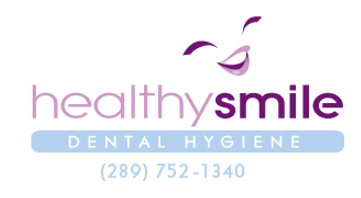When you visit your Orangeville Dentist, you may wonder if X-rays are always necessary. Dental X-rays are an important tool for oral diagnostics and dental health monitoring, but that doesn’t mean you need them at every appointment. Let’s break down when they’re required, how often they should be taken, and why they play a key role in protecting your smile.
Dental X-Ray Frequency | How Often Should You Get Them?
X-ray frequency depends on your age, oral health, and risk factors. Dentists use them to see what can’t be spotted in a visual exam, such as cavities between teeth, bone loss, or infections. In general:
- Children and teens may need X-rays more often since their teeth and jaws are still developing.
- Adults with healthy teeth and gums may only need them every 1–2 years.
- Patients with higher risk (history of cavities, gum disease, or tooth pain) may require them at every checkup.
Your Orangeville Dentist will recommend the right schedule based on your specific needs.
Orangeville Dentist Guide | Understanding X-Rays for Dental Health Monitoring
Dental X-rays help your dentist track changes over time. They reveal:
- Early cavities that aren’t visible yet
- Signs of gum disease and bone loss
- Infections at the root of a tooth
- Impacted teeth or wisdom tooth concerns
- Changes in jaw or sinus health
This makes them vital for long-term oral health monitoring.
Why Dentists Recommend X-Rays | Oral Diagnostics Explained
X-rays act as a roadmap for oral diagnostics. Without them, problems could go undetected until they cause pain or require costly treatment. Early detection saves both money and time by preventing issues from worsening.
Dental Health Monitoring in Orangeville | When X-Rays Are Necessary
Your dentist may recommend X-rays if you:
- Haven’t had them in more than 18 months
- Are a new patient needing a baseline record
- Report tooth pain, swelling, or sensitivity
- Have a history of gum disease or cavities
- Are planning dental procedures like implants or root canals
Are X-Rays Required Every Dental Appointment? | Expert Insights
No, most patients don’t need X-rays at every dental appointment. They are taken only when necessary for accurate diagnosis and safe treatment planning. Your Orangeville Dentist will balance your oral health needs with minimizing unnecessary exposure.
Dental X-Rays Explained | Frequency, Safety & Patient Benefits
Modern digital dental X-rays use very low radiation. The exposure is comparable to a short flight or a day in the sun. Dentists also use protective shields to keep you safe. The benefits of detecting hidden dental problems far outweigh the minimal risk.
Orangeville Dentist on X-Ray Guidelines | What Patients Should Know
The Canadian Dental Association provides clear guidelines on dental X-rays. These guidelines emphasize individualized care, meaning your dentist will only take them when there’s a clear benefit. If you’re unsure, you can always ask your dentist to explain why they’re needed.
Dental Visit X-Rays | Balancing Oral Health Needs and Safety
Your dentist’s goal is to protect your teeth and gums while keeping you safe. By tailoring X-ray frequency to your health history, dentists provide care that balances prevention with safety.
How Often Should You Get Dental X-Rays? | Complete Patient Guide
To keep it simple:
- New patients – full set of X-rays
- Children/teens – every 6–12 months depending on risk
- Adults with good oral health – every 1–2 years
- High-risk patients – more frequently as recommended
Your Orangeville Dentist will personalize this schedule during your dental checkup.
Keeping up with dental X-rays is one of the easiest ways to protect your smile from hidden problems. If it’s been over a year since your last full dental exam, now is the perfect time to book.
✅ Book a dental checkup in Orangeville today at Healthy Smile Dental Hygiene for personalized care, including safe and effective dental x-ray services. Whether you’re a new patient, need family dental care in Orangeville, or want a same-day dentist appointment, our team is here to help with complete diagnostic dental services.
Informative Resources:
